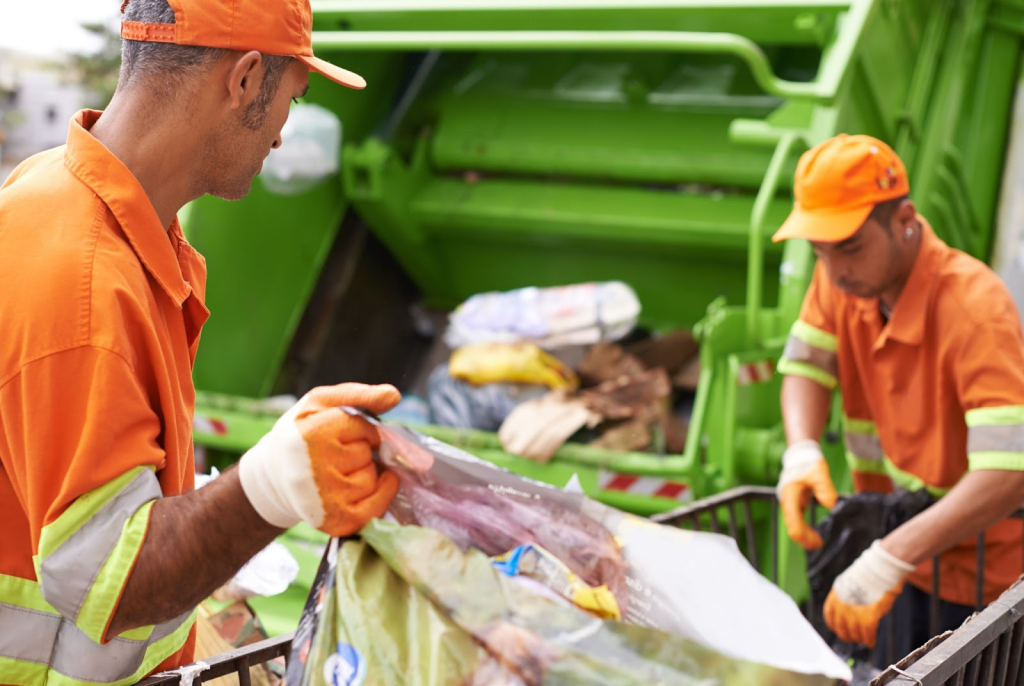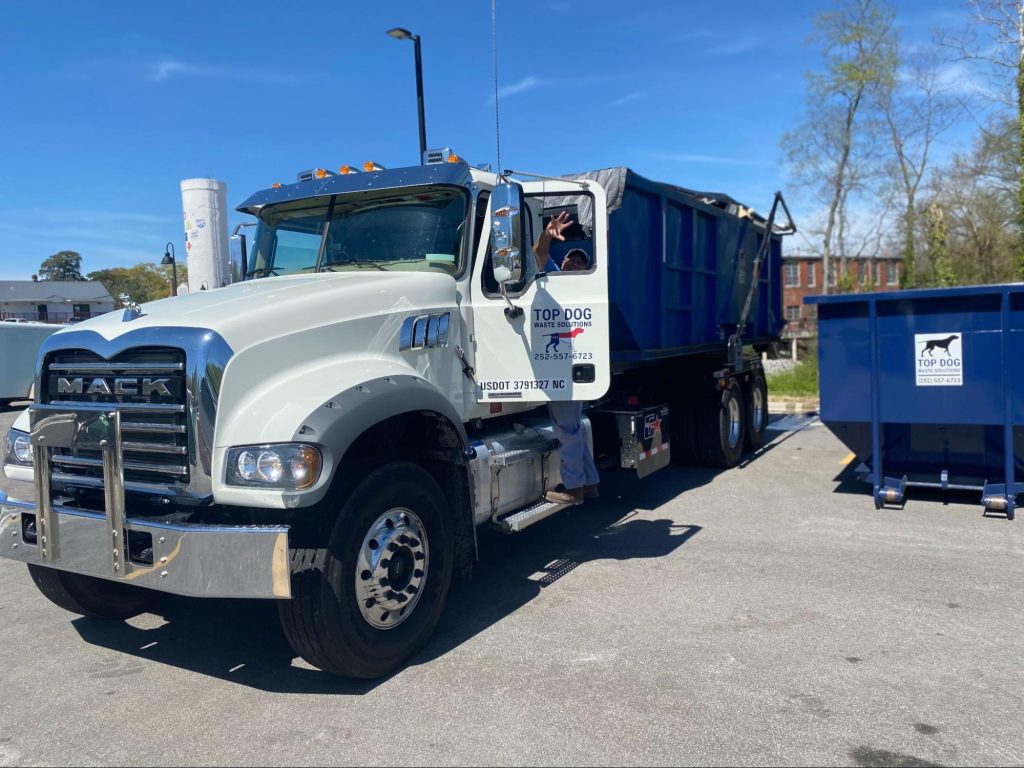Waste collection is vital to every business operation, yet it often flies under the radar. With sustainability now a business standard, waste trucks can’t be stuck in the past. How trash gets picked up, sorted, and moved directly affects emissions, efficiency, and overall environmental impact. Cleaner, smarter fleets are hitting the streets, and companies that rely on waste services are paying attention.
What Waste Management Trucks Do
Waste management trucks are specialized vehicles built to collect, transport, and handle different types of waste across residential, commercial, and industrial zones. They are crucial in keeping cities clean and businesses compliant with local regulations. Each type serves a specific purpose, from rear-loaders for everyday trash to roll-off trucks for construction debris. Modern fleets now include electric, hybrid, and sensor-equipped models that reduce emissions and improve efficiency. These trucks don’t just haul waste; they help sort, track, and manage it at the source. As sustainability becomes a business standard, waste trucks have become essential tools for cleaner, smarter operations.
How Waste Management Trucks Are Going Green
Waste trucks are no longer just about hauling garbage; they’re becoming part of the solution to environmental challenges. Fleet upgrades, new fuel options, and smart tech reshape how waste is collected and moved. These changes are driven by real business needs, not just environmental ideals. Cleaner fleets now offer better performance, lower costs, and more substantial brand value for the businesses they serve.
Waste Management Trucks Are Moving Away from Diesel
Eco-friendly trucks are replacing diesel fleets to reduce emissions and operating costs. Commercial haulers are upgrading to greener options to stay competitive, meet local laws, and satisfy ESG goals. These changes are not only good for the planet; they also make financial and operational sense. Lower fuel consumption, cleaner air, and quieter routes are just the beginning.
Natural Gas and Biodiesel Lower Carbon Emissions
Natural gas and biodiesel are now powering fleets in cities and suburbs. These fuels burn cleaner than traditional diesel and reduce carbon dioxide output. They also generate less engine wear, lowering hauler maintenance costs. This results in fewer breakdowns and more consistent pickup schedules for businesses. Clean fuel upgrades are often backed by state or city incentives, making them more affordable. Some waste providers even pass those savings on to their commercial clients.
All-Electric Trucks Eliminate Tailpipe Pollution
Electric waste trucks operate without releasing emissions during use. With strong battery capacity and regenerative braking, they can handle city routes with heavy loads. These trucks run quieter, which minimizes noise complaints in high-traffic zones. Electricity as a fuel source also avoids the price volatility of diesel. Companies using electric waste partners gain a sustainability edge and support cleaner city environments. As charging infrastructure expands, fleet-wide electrification is becoming easier to adopt.
Smart Waste Trucks Are Increasing Fleet Efficiency
Technology is helping waste trucks collect more and waste less. Smart systems reduce wasted fuel, lower driver fatigue, and improve route accuracy. These upgrades aren’t futuristic; they are used across many U.S. fleets. For businesses, this means smoother service and better pickup tracking.
GPS Systems Improve Route Planning
GPS tools now guide waste trucks through optimized daily routes. They help avoid traffic, road closures, and overlapping paths, which lowers fuel use. With fewer stops and delays, trucks complete more pickups in less time. Businesses benefit from more predictable schedules and fewer missed pickups. GPS software also adapts in real time, adjusting routes during storms, closures, or emergencies. These systems help reduce overtime and vehicle idling, affecting emissions.
Telematics Track Truck Performance in Real Time
Telematics systems send live data on engine status, braking behavior, and fuel use. Managers can spot problem trends before they become breakdowns. For example, unusual engine strain may signal that repairs are needed before a complete failure occurs. Businesses that rely on consistent service value fleets that use this tech. Waste vendors that share performance metrics often win trust from environmentally focused clients. These insights also help companies choose more innovative waste plans based on volume and trends.
Onboard Cameras Help Reduce Liability and Improve Service
Waste trucks now use onboard cameras to improve safety and documentation. Footage can verify pickups or explain property damage reports, creating transparency between service providers and commercial clients. Cameras also support driver training and reduce risk during tight maneuvers. For companies managing multiple sites, this added visibility is valuable. It helps ensure that services match agreed-upon terms without dispute.
Lightweight Trucks Reduce Fuel and Repair Costs
Modern materials are making trucks lighter and more energy-efficient. Every pound cut from the vehicle helps reduce fuel use during frequent stops. Waste haulers with lighter trucks save on both fuel and wear-and-tear. These upgrades lead to more reliable service for business clients who depend on daily collections.
Stronger Materials Replace Heavy Metal Frames
Truck manufacturers are now using aluminum and composite materials instead of steel. These lighter frames can withstand demanding routes without adding bulk. Less weight means better fuel economy on every stop-start pickup cycle. The lighter the truck, the less pressure it puts on brakes and tires, leading to fewer repairs and longer service life. Commercial clients benefit from more uptime and better fleet reliability.
Compact Designs Fit Urban Business Needs
Smaller, maneuverable waste trucks are ideal for downtown business zones. These models can easily fit into tight alleys and small loading docks. A smaller size doesn’t mean less capacity, as engineered interiors allow for smart load distribution. In dense neighborhoods or mixed-use spaces, compact trucks reduce disruption and the risk of property damage during pickups. Clients with limited space often request haulers who use these modern, low-profile models.
Hybrid Waste Trucks Are a Flexible Green Solution
Hybrid trucks blend electric drive and combustion power to reduce emissions without complete electric conversion. These vehicles offer a smart path forward for fleets not ready to go fully electric. Hybrid fleets offer a smart bridge for companies that want greener services without the risks of range limits. They support cleaner operations without changing routes or service frequency.
Hybrids Reduce Fuel Use on Stop-And-Go Routes
In stop-heavy routes like business parks or downtowns, hybrids shine. They use electric power when idling or moving slowly, switching to fuel when needed. It reduces fuel use without sacrificing power or performance. Braking also recharges the battery, so energy is reused efficiently. Hybrids cut both fuel costs and emissions during heavy-use conditions. For clients in busy zones, this leads to cleaner and quieter service.
Hybrids Support Smooth Fleet Transitions
Full electrification takes time and budget. Hybrids allow companies to take real steps toward sustainability without overhauling their entire operation. Waste vendors that offer hybrid options give clients more flexibility during planning. Businesses relying on steady pickup schedules can test green options without disruptions. Many companies use hybrids to meet mid-term ESG goals while preparing for electric shifts. This phased strategy is now common among top waste providers.

Smarter Trucks Help Improve Waste Sorting
Waste trucks are helping reduce landfill loads before reaching the processing site. From onboard separation to real-time waste tracking, modern fleets are changing how businesses manage trash. These trucks improve recycling rates, minimize contamination, and offer cleaner waste collection results. The right equipment reduces sorting labor and improves environmental reporting.
Multi-Compartment Trucks Improve Waste Segregation
Trucks with split compartments collect trash, recyclables, and compost in a single route, reducing the need for sorting at transfer stations. They also help keep recyclable materials clean, which boosts their reuse value. Clients receive fewer penalties for contamination, and more materials get properly processed. Businesses benefit from smoother waste tracking and higher diversion rates. Haulers that provide split-compartment trucks often support zero-waste initiatives.
Robotic Arms Improve Safety and Efficiency
Automated arms handle bins without requiring workers to lift or dump them. It reduces injury risk and speeds up pickups. With less time at each stop, trucks complete more pickups with less fuel. Fewer spillage incidents also mean cleaner loading zones. These systems are now standard in many urban fleets. Business owners notice faster routes and cleaner, safer surroundings.
Data Tools Help Businesses Track and Cut Waste
Some trucks now send waste data directly to business clients. Reports can show how much trash, recycling, and compost a site generates over time. This data supports better purchasing, cleaner habits, and goal tracking. Clients can pinpoint what type of waste they generate the most and why. That drives smarter decisions about packaging, sourcing, or internal processes. Trucks with analytics offer more than pickup; they offer visibility.
Move Your Business Forward With Greener Waste Trucks
Every outdated truck on your route adds cost, risk, and pollution you can’t afford to carry anymore. Cleaner fleets don’t just meet regulations; they give your brand an edge, improve service reliability, and align with the expectations of today’s partners and clients. The shift to greener waste management trucks isn’t just smart; it’s already happening. Businesses that move first gain more than compliance; they gain momentum. The question isn’t whether change is coming. It’s whether your operations are ready to lead it.
Want more innovative solutions for cleaner waste operations? Explore the Top Dog Waste Solutions blog for real insights and industry-driven updates.








